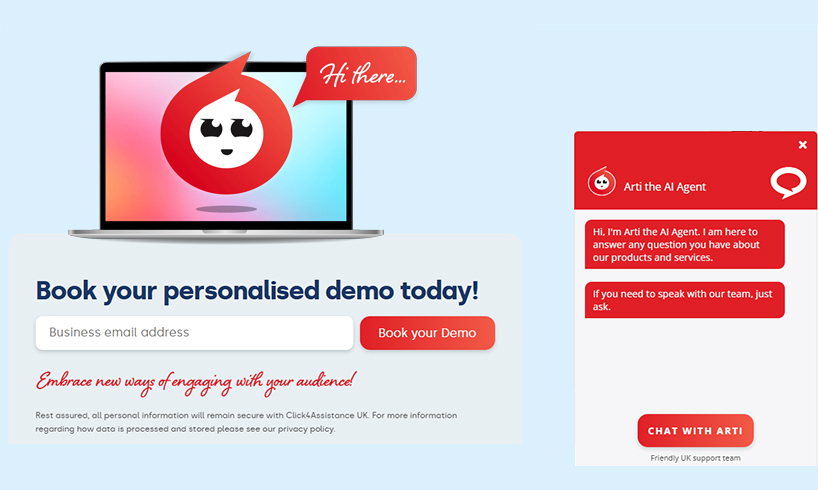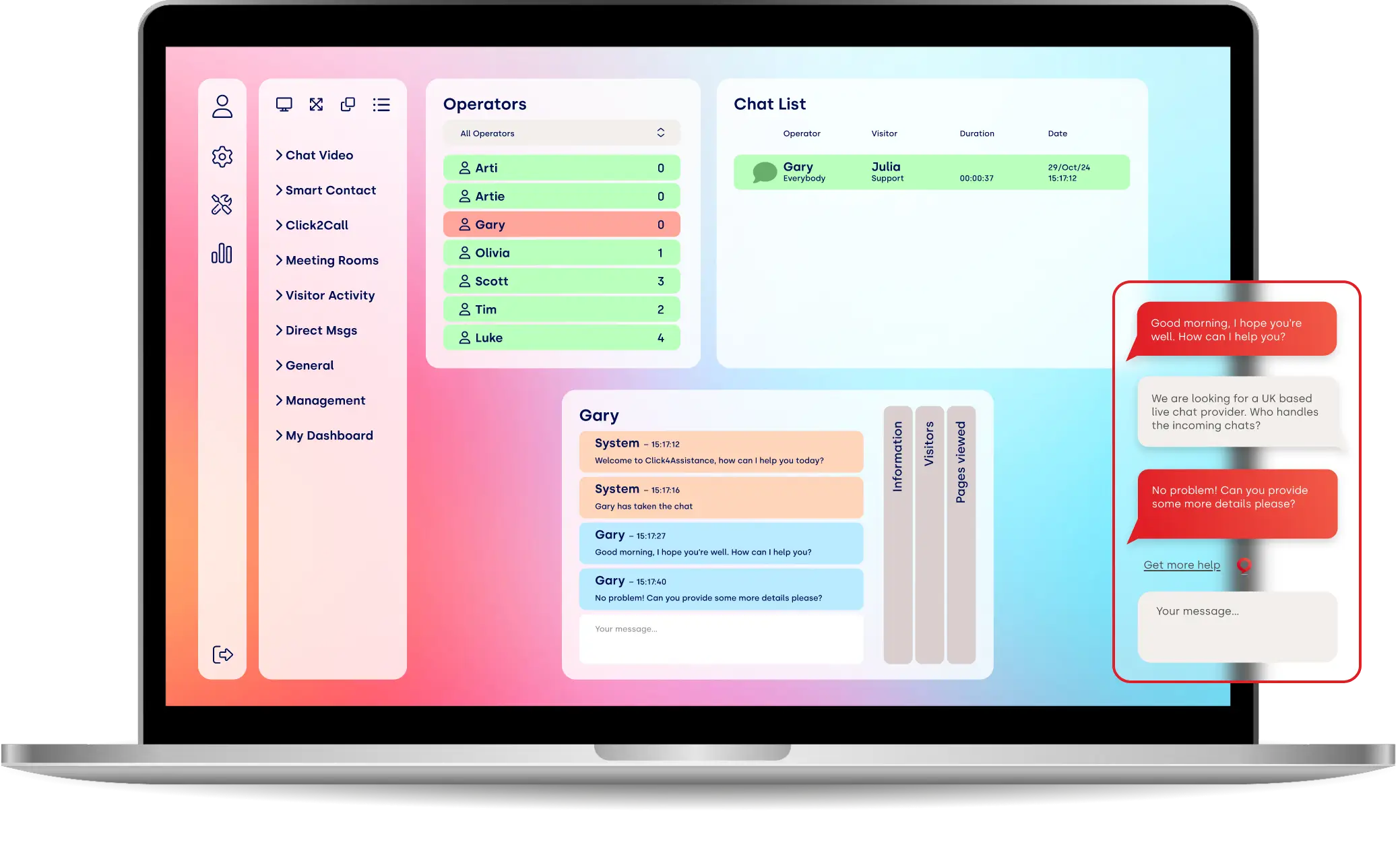What is the AI Act and How Will It Impact the UK?

The EU AI Act has been passed into law, but what is it and how will it impact UK-based businesses? Come see all the details.
AI has become one of the most searched terms online, and it's easy to see why; it's made a massive impact on all of our lives. So much so that the powers that be within the EU are edging ever closer to passing rules that will govern the use of AI artificial intelligence tools.
Under the proposals, AI systems will be regulated based on their potential to cause harm, while the UK is not part of the EU and is developing its own AI framework, the legislation can have a lasting effect on anybody looking to incorporate AI tools, such as chatbots. If you are now learning how to add online chat to your website pages, and you are concerned about the AI Act, let's show you everything you need to know.
What is the AI Act?
The Artificial Intelligence (AI) Act is a selection of new rules aimed at making sure AI is used responsibly, ethically, and safely. The European Commission proposed the EU AI Act in April 2021, and on 13 March 2024, the European Parliament passed it.
The Act aims to address various potential risks associated with AI systems which are categorised into different levels based on the harm they can cause: unacceptable risk, high risk, and low risk.
Unacceptable Risk
This category includes AI systems that pose a serious threat to fundamental rights and freedoms. Examples identified by the AI Act are:
- Real-time and remote biometric identification systems, for example, facial recognition.
- Social scoring, which is the practice of classifying people based on behaviour, personal characteristics, or socioeconomic status.
- Cognitive behavioural manipulation of people or specific vulnerable groups.
High Risk
AI systems in this category pose a significant risk to the health, safety, and/or fundamental rights and freedoms of individuals. Some examples of high-risk AI systems include:
- AI systems that fall into specific areas that require registration in an EU database.
- AI systems are used in products covered by the EU's product safety legislation, for example, toys, cars, aviation, lifts, and even medical devices.
Low Risk
Low-risk AI systems have specific transparent obligations that users must be aware of, which allow users to make informed decisions about whether they want to continue interacting with these AI systems.
Low-risk examples include applications like AI-enabled video games or spam filters. The systems are considered safe to use and do not pose adverse effects, which allows users to freely engage without any significant concerns.
The AI Act regulates low-risk AI systems in a way that balances both innovation and safety, ensuring that the systems meet the basic requirements for transparency and user awareness without imposing overly harsh regulations on their development and deployment.
The Implications of the AI Act for the UK
The implications for businesses in the UK are significant, especially for those operating within the EU or offering AI services in the EU market:
Compliance Requirements
UK businesses that deploy AI systems within the EU, offer them on the EU market, or engage in activities governed by the Act will need to ensure their AI systems comply with the regulations:
- Failure to comply could result in significant consequences, including substantial fines, with penalties reaching up to 7% of the global annual turnover of the legal entity responsible for the system.
- Certain practices deemed incompatible with equality and fundamental freedoms are banned; therefore, businesses must ensure their AI systems do not engage in activities that violate these principles.
- Those operating in or providing services to the EU will have to comply, which can have an impact on operations. UK businesses must be prepared to adhere to the requirements if they operate within the EU market, which includes ensuring data protection, non-discrimination, transparency, and other key principles.
The Impact on High-Risk Systems
The AI Act places very specific obligations on providers of high-risk AI systems, requiring the conduct of risk assessments before operating within the EU. Businesses using and developing high-risk AI systems will have to comply with the regulations.
The Potential Impact on Tech Firms
The AI Act may have an effect on UK-based technology firms and companies doing business with the EU due to its proximity to Europe and may require increased transparency requirements for consumers regarding how AI systems use their data.
The Global Impact
Similar to the GDPR (General Data Protection Regulation), the AI Act is expected to set a global standard for regulating AI systems. UK-based companies that proactively embrace and comply with the Act can, therefore, differentiate themselves in the UK market and attract customers who prioritise ethical and accountable solutions.
How the UK Can Best Align Themselves with the AI Act
Organisations and businesses across the UK can benefit from taking several strategic steps:
Understand the Act
The UK should thoroughly understand the provisions of the AI Act, including its obligations and practices, which is crucial for ensuring alignment with the regulations and its associated framework.
Prepare to Comply
By assessing current and future AI systems, whether you are looking to learn how to add online chat to your website pages or incorporate any other forms of artificial intelligence, it is critical to start preparing early for compliance with this Act by assessing current and future systems to determine their risk levels and ensure they meet the standards.
Engage with Regulatory Bodies
The UK's various regulatory parties have published guidance to assist companies to comply with the AI Act, such as the Information Commissioner's Office (ICO) and the Competition and Markets Authority (CMA).
Develop a Roadmap
Businesses using AI should develop a regulatory roadmap to assess if their current or intended AI use complies with the Act. Businesses that are using high-risk systems should prepare strategies to ensure compliance with the regulations' requirements.
Stay Up to Date
It is essential for businesses to now adapt their AI strategies and practices to align with any new requirements or guidelines set forth by the Act.
AI is having a major impact on everybody, and as businesses slowly wake up to AI's possibilities, the discussion of its various regulations is just as critical. If you are wondering how to add online chat to your website pages or incorporate any artificial intelligence tools, it is essential to be cognizant of the AI Act.

























